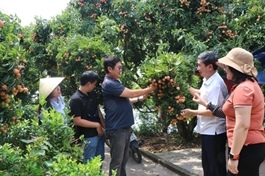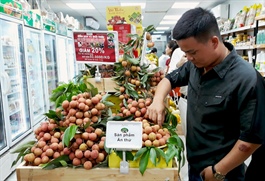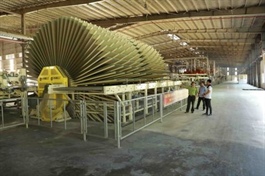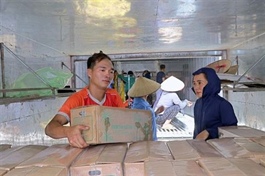VAT refund delays tick off woodchip makers
VAT refund delays tick off woodchip makers
A number of woodchip exporters in Vietnam are rejecting orders as they are waiting for more than $170 million in pending VAT refunds.

Woodchip exporting firms stated that the basic reason for the congestion in their current VAT refund is due to the contradictory instructions of the General Department of Taxation (GDT) in documents issued over the past few years.
In Vietnam, it is challenging to refund VAT on plywood, woodchips, and tablets, which account for nearly 40 per cent of the total export revenue of the wood sector, according to the Vietnam Timber and Forest Product Association (Viforest).
Tax refunds have not been processed for some businesses since 2021 because the Ministry of Finance (MoF) believed that they require substantiation of timber from producers to afforestation, adding more time and effort to the process.
Pham Thi Vinh, director of Halong 12-11 JSC in the northeastern province of Quang Ninh, said, “We are unaware of how to process a tax refund. We can no longer purchase raw materials due to a lack of capital. As a result, we are compelled to reduce production by half and shift the remaining workers.” Halong 12–11 has a tax refund of roughly $4.3 million pending.
According to GDT data, since the start of 2022, the tax authority has refunded $813 million in VAT for 4,760 records of timber businesses. The agency also verified that the tax authority denied refunds for 44 records, totalling $13.2 million. Over the same time, the tax authority has transmitted the records of nine businesses requesting refunds on wood products to the police due to suspecting fraudulent activity.
According to Viforest, numerous wooden businesses have not been refunded VAT totalling more than $255 million, with wood exporters accounting for more than $170 million. Quang Ninh alone has 11 businesses waiting for around $47 million.
At the meeting on May 29, a group of Quang Ninh woodchip exporters reported that only 10 per cent of all records were verified since the start of 2022. According to these companies, the authorities can typically verify no more than four records per day.
The tax authorities frequently advise businesses not to submit tax documents because they are unable to reimburse the tax at this time, according to a number of wood-exporting businesses, and the tax authority will alert the business at the appropriate time to submit the dossier.
Thang Van Thong, deputy chief of the Woodchip Section of Viforest, told VIR, “The MoF and GDT’s tight oversight measures are reasonable, but they must be compatible with production and business circumstances. Cases that violate tax laws have a limited extent. The scope of the entire timber industry and wood shavings in particular should not be limited by a small state.”
Hao Hung Co., Ltd., one of the largest exporters of woodchips in Vietnam, has consistently refused export orders for woodchips in recent months. The company said producers refuse orders since the greater the quantity of exports, the longer the delay for the tax refund.
According to Hao Hung, cash flow pressure is negatively influencing the competitive price capacity of Vietnamese sawdust exporters. Particularly on the Chinese market, Vietnamese woodchip costs at least $5 per tonne more than from other nations. Currently, Brazil has the lowest price, followed by Chile, while Australia is resuming production.
Officials have proposed a succession of solutions to eliminate tax issues, none of which meet the tax refund requirements of the timber industry. To prevent tax refund fraud, a number of enterprises have proposed implementing zero-per cent VAT. If it was introduced, businesses will sustain all losses associated with accounting and deduction, Thong of Viforest stated.
After meetings in May, Thong stated that businesses now want a specific roadmap for VAT refunds. “An increasing number are taking into consideration a plan to cease purchasing goods from intermediary factories, and instead self-invest in the supply chain. The reduction of woodchips to low levels will result in cessation of operations by a number of processing firms and have a negative impact on 1,400 forest-planting households in Vietnam.”

























